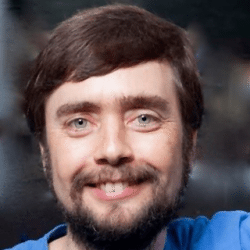
Michael Levin, PhD, Director of the Allen Discovery Center at Tufts, and Tufts Center for Regenerative and Development Biology at Tufts University, presented innovative research in the fascinating fields of bioelectric networks and regenerative medicine.
In this presentation, Dr. Levin sketched a roadmap for regenerative medicine focused on manipulating the bioelectric pattern memories in tissue (as distinct to popular approaches of micromanaging molecular pathways), and described advances in the areas of repair of birth defects, limb regeneration, and cancer reprogramming.
He first discussed some fundamental problems of cell and developmental biology that must be solved to gain complete control over growth and form.
Dr. Levin also described developmental bioelectricity and the tools his group has created to modulate voltage-based signals that orchestrate cell behavior toward building and repairing complex anatomies.
Biography
Michael Levin, PhD, originally trained in computer science and artificial intelligence. Interested in novel ways to store and process information, he moved into biology to understand how living tissue performs computation during morphogenesis. He received his PhD from the genetics department at Harvard Medical School, identifying the first genes regulating the left-right asymmetry of the embryonic bodyplan. His laboratory is at Tufts University, where he is Vannevar Bush professor of biology, and director of the Allen Discovery Center.
Levin’s group is focused on understanding the mechanisms and algorithms by which cells are harnessed toward the creation and repair of complex anatomies. His lab specializes in understanding the bioelectrical signals that all cells (not just neurons) enable coordination and decision-making at the organ level. Using a combination of molecular embryology, biophysics, and computational modeling, they develop biomedical applications and new advances in machine learning and robotics inspired by the software of life.
Event Details
Date/Time: Tuesday, January 7, 2020 | 8:00 am – 9:00 am (followed by coffee hour, 9:00 am – 10:00 am)
Venue: Bornstein Family Amphitheater, Brigham and Women’s Hospital, 45 Francis St. Boston, MA
Cost: Free. CME credit available (for in-person and virtual attendance).
Download Flier
See full schedule
Resources
- Cracking the bioelectric code: Probing endogenous ionic controls of pattern formation. Communicative & Integrative Biology Jan 2013; 6:1, 1–8
2. The biolectric code: An ancient computational medium for dynamic control of growth and form. BioSystems 164 (2018) 76–93
3. The wisdom of the body: future techniques and approaches to morphogenetic fields in regenerative medicine, developmental biology and cancer. Regen. Med. (2011) 6(6), 667–673
4. The body electric 2.0: recent advances in developmental bioelectricity for regenerative and synthetic bioengineering. Current Opinion in Biotechnology 2018, 52:134–144










